A reality worth pondering
In the middle of the winter-spring crop, this is the time when farmers are focusing on fertilizing rice and vegetables in the fields. We conducted a small survey on how farmers use fertilizers. First, when asked whether they use manure/organic microbial fertilizers to fertilize their crops, most of the answers were no. There are many reasons, such as the family does not raise livestock now so there is no manure, the price of organic fertilizer is higher than inorganic fertilizer, and more importantly, using manure is cumbersome, inconvenient, and time-consuming... If farmers do not use organic fertilizers, of course the only choice at this time is inorganic fertilizers.
Mr. Dinh Quoc Trieu (Tien Phuong 2 village, Van Phuong commune, Nho Quan) shared: In the past, when chemical fertilizers were not popular, farmers like him mainly used manure to fertilize crops, but in the past 10-15 years, this habit has been almost forgotten. Like his family, although still raising chickens and pigs, the fertilizer used for 5 sao of rice fields is all chemical fertilizer.
"Now both my husband and I are over 70 years old, our health is poor, we can't compost and push the cart to the field, so we have to go to the store to buy chemical fertilizers to fertilize quickly" - Mr. Trieu explained. According to Mr. Trieu, currently only households growing vegetables or fruit trees use manure.
Not only tending to use chemical fertilizers, the way farmers use fertilizers in the province today also has many problems when determining when to apply fertilizer, how much to apply, and what ratio of each type is all done based on intuition and experience.
Sharing about how to fertilize 5 sao of rice of Mrs. Vu Thi Hien's family (Ninh Thang commune, Hoa Lu district) calmly: Taking care of it is simple, no need to fertilize. After sowing, if you see the rice is dry, sprinkle a few pounds of nitrogen for the plant to grow, then when the rice is about to form panicles, add NPK fertilizer.
In fact, due to farming practices and lack of training, many farmers in the province currently do not fertilize in the right amount and in the right way. Most people have the habit of fertilizing with a lot of nitrogen fertilizer (urea). For example, for rice, the amount of urea that experts recommend is only 7-8 kg/sao, but many farmers, especially those in Yen Khanh and Kim Son areas, fertilize up to 10 kg or even 12 kg/sao. In addition, the situation of farmers using single fertilizers, not combining nitrogen, phosphorus, and potassium in a balanced way, is also quite common. The method of fertilizing is mainly spreading on the ground, and fertilizers are rarely buried in the soil, so the rate of evaporation and loss is high.
Many consequences
According to estimates from the provincial Department of Crop Production and Plant Protection, Ninh Binh province annually cultivates about 100,000 hectares of various crops. Of which, the annual crop area is estimated at over 91,000 hectares, of which rice area is over 71,000 hectares, vegetable and bean area is nearly 10,000 hectares; perennial crop area is over 7,500 hectares, of which fruit trees are about 6,700 hectares. On average, the amount of inorganic fertilizer used in production each year is about 92,600 tons, equivalent to more than 900 kg/ha - a not small number.
Meanwhile, according to research, the efficiency of nitrogen fertilizer application in Vietnam is only 30-45%, phosphate fertilizer is 40-45%, potassium fertilizer is 40-50%, depending on the soil, crop variety, season, fertilization method, and type of fertilizer. Thus, a large amount of remaining fertilizer will be washed away with surface water and flow into ponds, lakes, rivers and streams, causing surface water pollution; part of it seeps into the groundwater and part of it evaporates due to the impact of temperature or the denitrification process, causing air pollution...
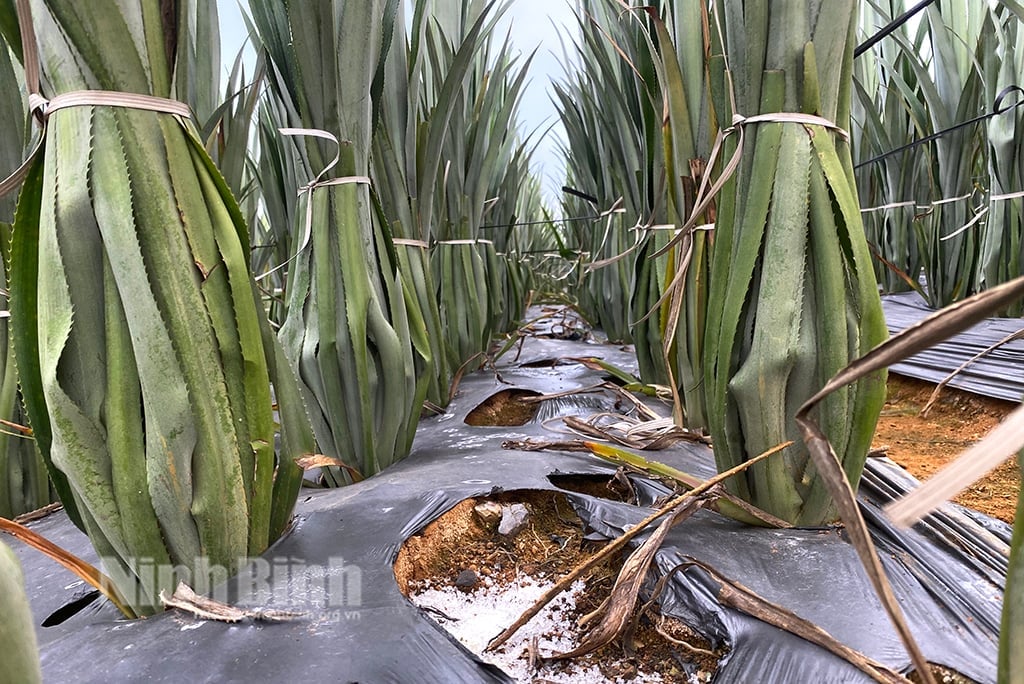
Dr. Mai Thanh Luan, Faculty of Agriculture, Forestry and Fisheries (Hong Duc University) analyzed: Overuse of chemical fertilizers will cause soil microorganisms to gradually die. Meanwhile, soil microorganisms play an extremely important role in transporting and taking nutrients to plant roots. Without microorganisms, the soil will become infertile and hard. At that time, even if we fertilize with very high doses and provide adequate nutrients, the plants will not be able to use them, and the efficiency of fertilizer use will decrease.
Engineer Nguyen Thi Nhung, Head of Plant Protection Department, Department of Crop Production and Plant Protection of the province, stated the current situation: Currently, in some localities, farmers still apply more fertilizer than recommended, not only causing waste but also reducing the resistance of crops to pests and diseases, especially for rice, which is blast disease in the winter-spring crop and bacterial leaf blight and stripe disease in the summer-autumn crop.
More worryingly, studies have shown that wasteful and indiscriminate use of chemical nitrogen causes excess nitrate in agricultural products. Nitrate in the human body is converted into nitrite. Nitrite easily reacts with amines to form nitrosamine, a carcinogen. To limit nitrate in crop products, according to experts, consumers cannot clean it by washing, peeling or rinsing, because nitrate has penetrated into plant cells, so the only way is to detect residues exceeding the allowable threshold so as not to use or reduce the amount to avoid harm to the body.
Not only managers and scientists have warned about the harmful effects of overusing inorganic fertilizers, but farmers themselves have also had to admit that in the past, they felt the land was more fertile, but after many years of using many types of chemical fertilizers and pesticides, the soil has become hard, has poor water retention capacity, and is no longer as porous as before.
Definitely change habits
The irreversible consequences of fertilizer abuse in farming show that it is time to say “no” to old production practices. This will help farmers save money and, more importantly, produce safe agricultural products, protect public health and minimize negative impacts on the environment.
Dr. Mai Thanh Luan, Faculty of Agriculture, Forestry and Fisheries (Hong Duc University) stated his opinion: The important role of chemical fertilizers cannot be denied, without chemical fertilizers, high productivity cannot be created. In the short term, it is impossible to completely eliminate chemical fertilizers. However, in the new agricultural trend, to ensure productivity, economy, environment, health and suitability with people's conditions, it is necessary to combine and balance the use of inorganic and organic fertilizers. The proportion of this combination needs to be researched and evaluated specifically for each region.
In addition to reducing the amount of fertilizer, farmers can effectively exploit their agricultural by-products to reduce production costs and increase profits. Currently, each year in the province, there are millions of tons of agricultural by-products, livestock and poultry manure, which are a very abundant source of organic fertilizer but are being wasted. We can completely reuse them to apply in the closed, continuous chain of cultivation and livestock farming.
In fact, in recent times, our province has paid attention to orientation and has many support policies to convert agricultural production to organic and has achieved certain results. Up to now, the whole province has over 4 thousand hectares of high-quality rice produced in an organic direction, some vegetable areas have also been certified VietGap... However, these numbers are still too small compared to the current production scale.
Mr. Nguyen Ngoc Tuan, Deputy Head of the Provincial Department of Crop Production and Plant Protection, said: In areas with a tradition of intensive farming and a habit of using a lot of inorganic fertilizers, changing people's farming habits and practices to using organic fertilizers requires a long time to improve the soil, water resources, and perseverance of the producers themselves. Moreover, due to market fluctuations, prices of agricultural materials, specifically inorganic fertilizers, fluctuate unstably, while organic fertilizer prices remain high, leading to an unstable and inconsistent investment mentality in production. Meanwhile, the prices of organic products are not much higher than those of conventional agricultural products, so they have not created motivation for people, significantly affecting the expansion and maintenance of organic production areas.
To overcome this, in the coming time, the specialized sector will increase the opening of training courses to help farmers have the knowledge to choose the right type of fertilizer suitable for their crops, avoiding the situation of indiscriminate fertilization and not following the technical process. Gradually change the thinking of farmers "the more fertilizer, the better the plant", making farmers fully aware of the harmful effects of overusing chemical fertilizers. Effectively implement the 3 reduction program (reducing the amount of nitrogen fertilizer, reducing pesticides, reducing the amount of seeds planted) to achieve 3 increases (increasing productivity, increasing product quality, increasing economic efficiency). In addition, advise the province to have stronger support mechanisms and policies to encourage people to use organic fertilizers instead of inorganic fertilizers.
Article and photos: Nguyen Luu
Source







![[Photo] Closing of the 11th Conference of the 13th Central Committee of the Communist Party of Vietnam](https://vstatic.vietnam.vn/vietnam/resource/IMAGE/2025/4/12/114b57fe6e9b4814a5ddfacf6dfe5b7f)
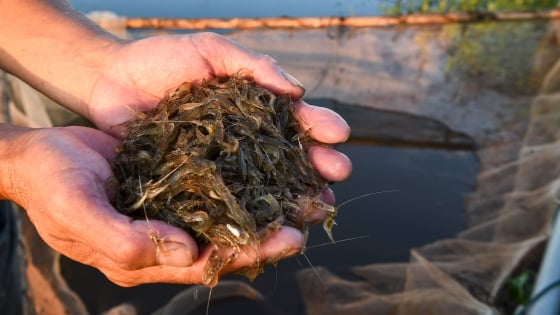

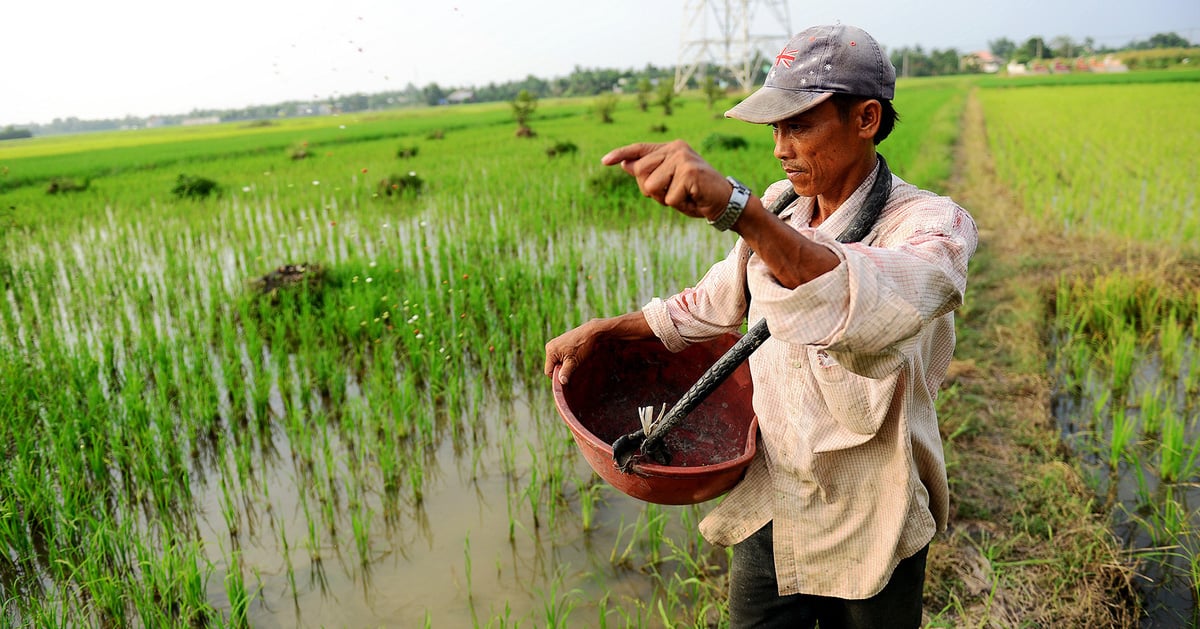

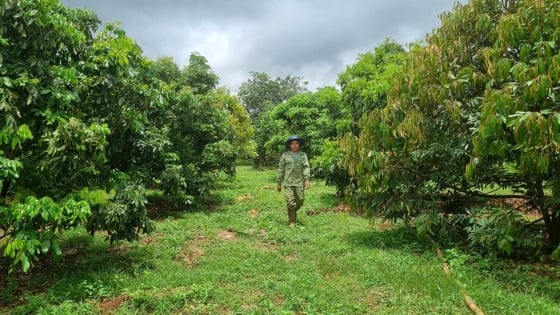

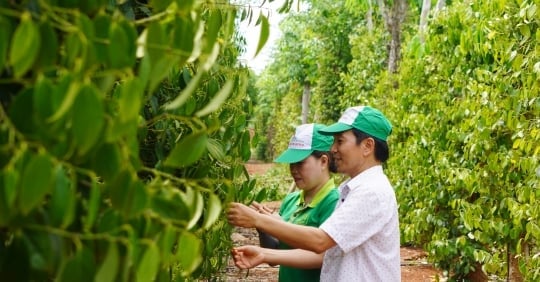
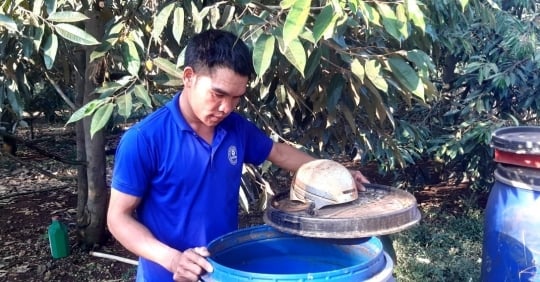

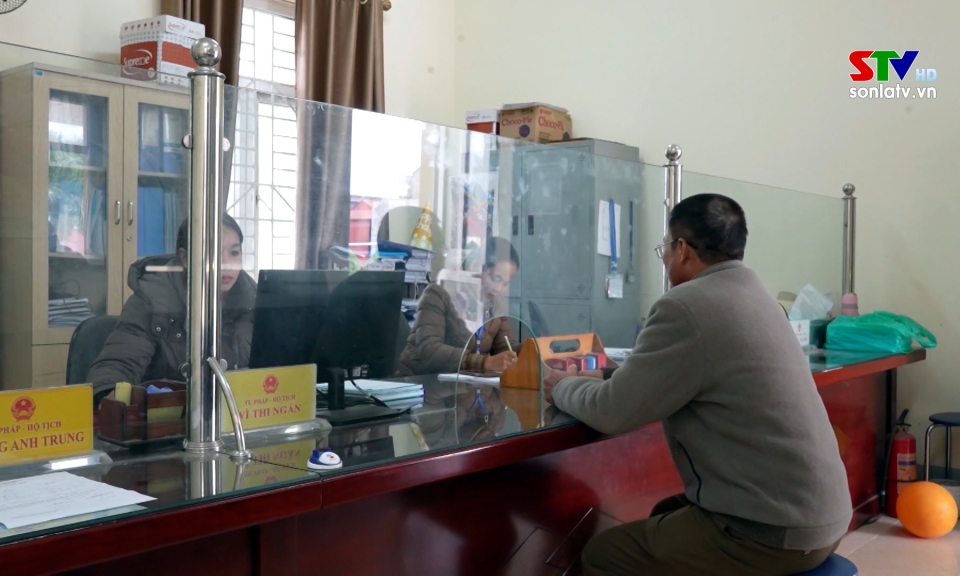



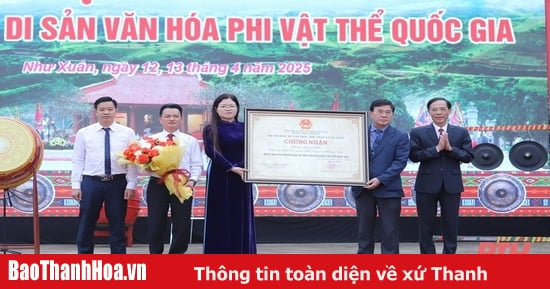




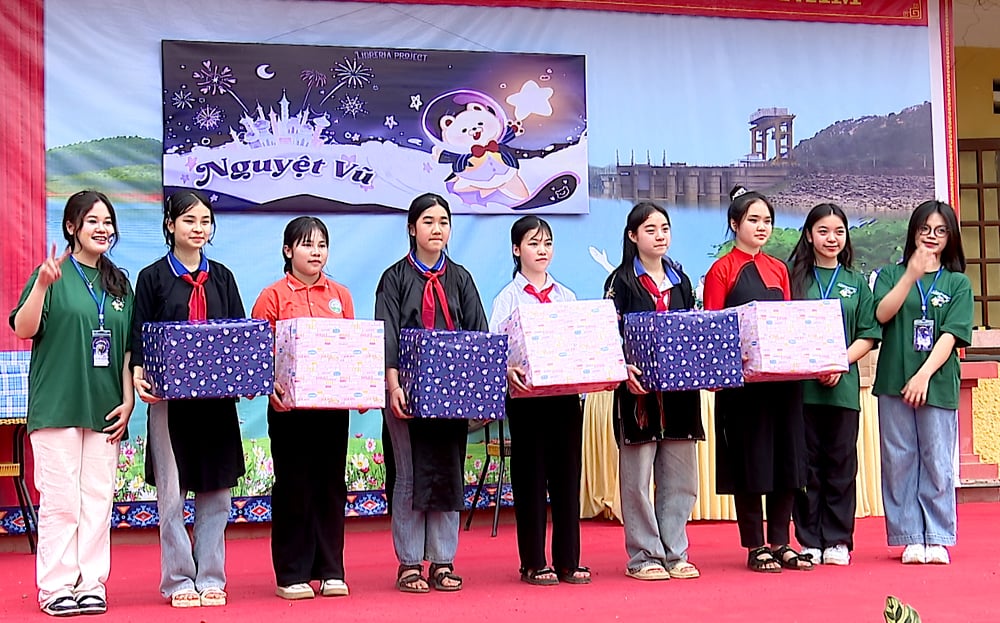





![[Photo] Overcoming all difficulties, speeding up construction progress of Hoa Binh Hydropower Plant Expansion Project](https://vstatic.vietnam.vn/vietnam/resource/IMAGE/2025/4/12/bff04b551e98484c84d74c8faa3526e0)










































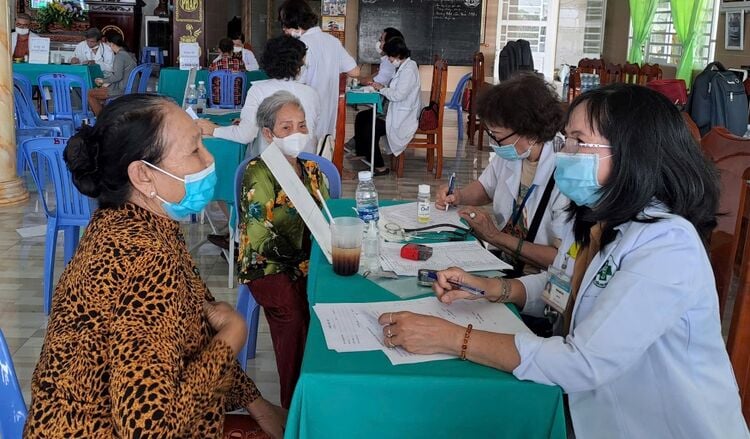




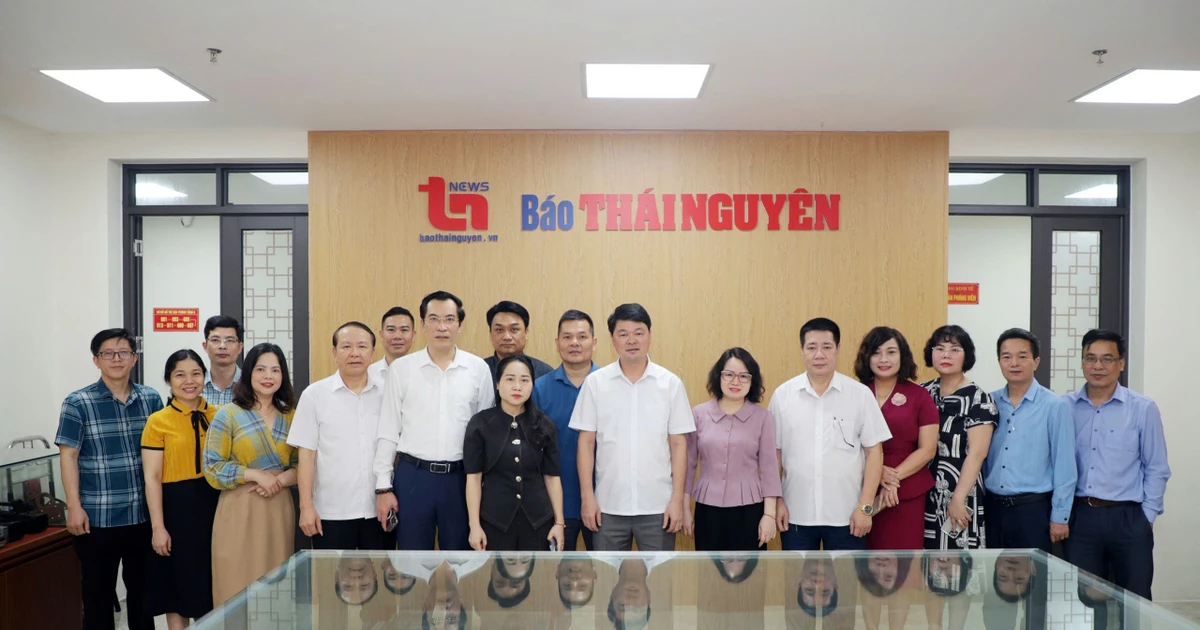



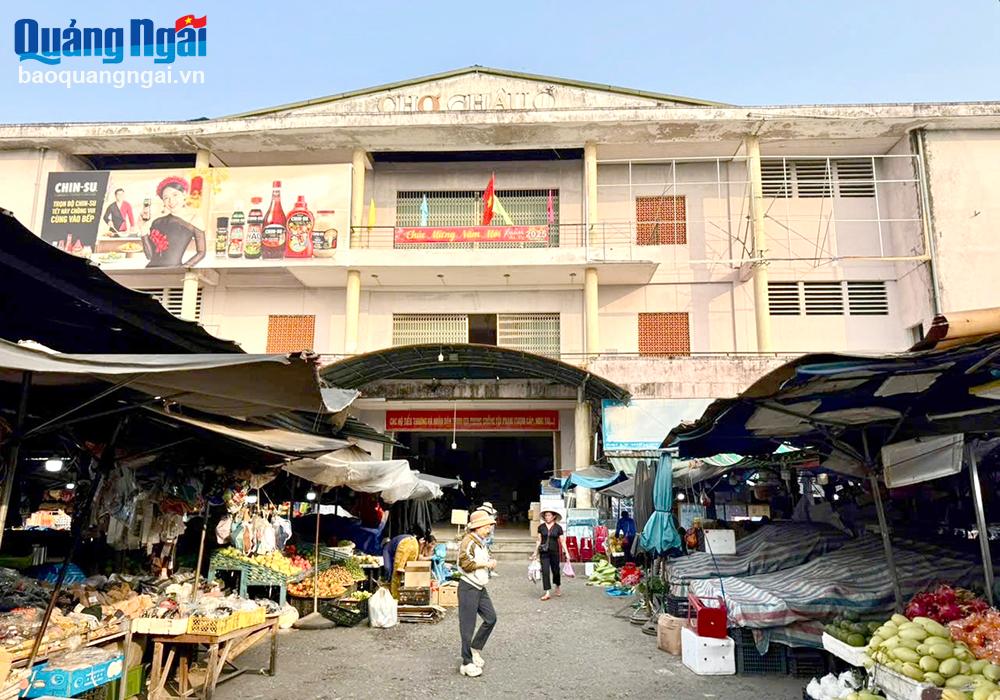











Comment (0)